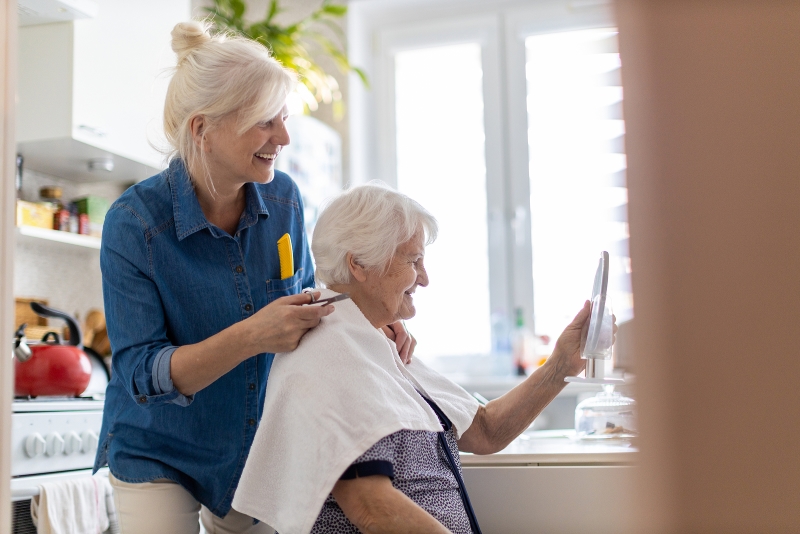July is Women with Alopecia Month, which could make this an ideal time to talk with your elderly family member about how alopecia may be impacting her life. Estimates put over 50 percent of women at risk of developing alopecia, or excessive hair loss, as they age. If that’s something that your elderly family member is dealing with, these tips may help you and your senior to develop a plan to help her to cope.
Simplify Haircare for Your Senior
Some of the things that your senior might be doing to take care of her hair or to preserve it from greater loss might be harsher than she realizes. Also, some styling tools and techniques are rough on hair. Avoiding things like heated styling tools and hair coloring can help your senior’s remaining hair to become stronger. Talking with both your senior’s doctor and her hair stylist, if she has a regular one, can help to determine other ways to simplify her haircare routine.
Consider Switching up Her Haircut
Shorter haircuts can be easier for your aging family member to maintain every day. They can also help to disguise a lot of hair loss that your senior has experienced. Chin-length cuts or pixie cuts are usually universally flattering and much easier to manage than longer, more complicated cuts. A good hair stylist can give your senior a style that works for her face shape and needs.
Use Products That Moisturize and Protect Her Scalp
Your senior’s hair is more likely to be dry, brittle, or damaged as well. The hair strands can weaken and break off, making hair loss even more complicated. Using products that help to moisturize and protect both the hair and your elderly family member’s scalp can help with these issues. Occasionally using protein-based deep conditioners can also help with strengthening the hair.
Consider How Her Diet Affects Hair Health
It’s also important to take a closer look at what your senior is eating and how that can impact her hair health as well as her overall health. Talking with her doctor can also help to determine whether your senior’s diet supports a healthier life overall for her. Home care providers may be a good idea to help your senior with any issues around preparing meals and remembering to eat healthier foods every day.
Get Help with Personal Care for Your Senior
Personal care at home is a specific type of care that assists with tasks related to tasks like bathing, grooming, and eating. That means that if your elderly family member needs more help taking care of her body and her hair, personal care at home can be there for her. That’s especially important if you’re not able to be there with your senior to offer her as much assistance as you want to offer her.
Alopecia seems like a superficial issue, but it can have a serious impact on your senior’s mental health, including her self-esteem. Addressing any underlying causes can help to reverse the issue, but often alopecia may not be reversible.

